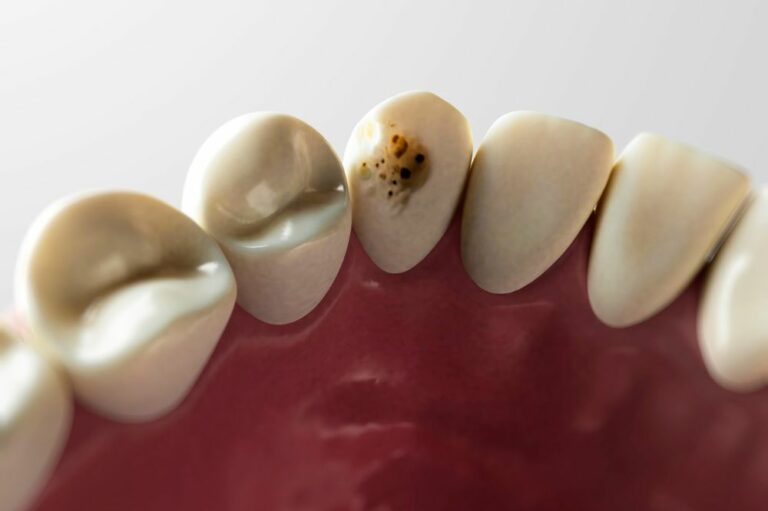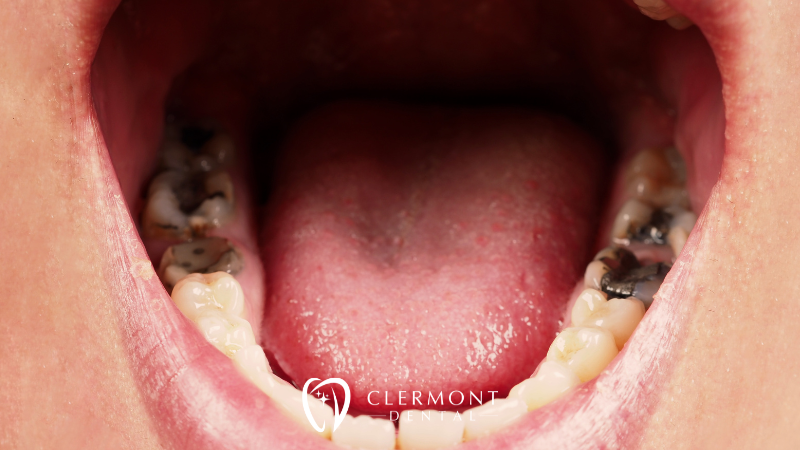Tooth decay is a common dental problem that affects people of all ages. It occurs when bacteria in your mouth produce acids that erode the enamel of your teeth, leading to cavities. If left untreated, tooth decay can cause pain, infection, and even tooth loss. However, with proper oral hygiene and regular dental check-ups, you can effectively deal with tooth decay. In this article, we will explore the causes, symptoms, prevention, and treatment options for tooth decay.
Understanding the Causes of Tooth Decay
Tooth decay is primarily caused by poor oral hygiene and a sugar-rich diet. If you have tooth decay, it means the outer layer of your tooth has been eaten away. The outer layer of your teeth is called enamel and it protects the inner part of your teeth. When you consume sugary foods and beverages, the bacteria in your mouth feed on the sugar, producing acids that attack your tooth enamel. This demineralization process weakens the teeth and makes them more susceptible to decay.

Stress and anxiety also make you more prone to grinding your teeth, which can damage them over time if it goes on for long enough; stress also makes you more likely to forget about good oral hygiene habits such as flossing regularly or brushing twice a day with fluoride toothpaste for two minutes each time (the recommended length of time).
Recognizing the Symptoms of Tooth Decay
Early detection of tooth decay is crucial in preventing further damage. Some common symptoms include:
- Toothache or sensitive teeth
- Dark spots or visible holes on the surface of the teeth
- Bad breath
- Discolored or stained teeth
- Pus or discharge around a tooth
If you experience any of these symptoms, it is important to visit your dentist as soon as possible for a proper diagnosis and treatment plan.
Prevention is Key
Preventing tooth decay starts with adopting good oral hygiene practices. Here are some tips to keep your teeth healthy:
- Brush your teeth at least twice a day using fluoride toothpaste.
- Floss daily to remove plaque from between your teeth and along the gumline.
- Limit your consumption of sugary and acidic foods and beverages, especially between meals or snacks, as it can contribute to tooth decay in both children and adults alike! The more sugary foods you eat, the more likely you are to develop cavities..
- Drink plenty of water, which helps wash away food particles, bacteria and neutralize acids in your mouth.
- Avoid smoking or using tobacco products, as they can contribute to tooth decay and gum disease.
Treatment Options for Tooth Decay
It is important to note that tooth decay can be a painful process. Once affected by it, you need to see a dentist right away. He or she will diagnose the problem and provide you with the best treatment plan possible.
The treatment for tooth decay depends on the severity of the condition. In the early stages, your dentist may recommend:
- Dental fillings: This involves removing the decayed portion of the tooth and filling the cavity with a suitable dental material.
For more advanced cases, the following treatments may be necessary:
- Dental crowns: When a large portion of a tooth is damaged, a crown may be placed to restore its shape and strength.
- Root canal therapy: If the tooth decay reaches the pulp, it may be necessary to perform a root canal to remove the infected tissue and save the tooth.
- Tooth extraction: In cases where the decay is extensive and the tooth cannot be saved, extraction may be the only option.
Regular Dental Check-ups are Essential
Regular dental check-ups are vital in maintaining good oral health and detecting tooth decay early. Dr. Safavi can identify any signs of decay and provide appropriate treatment before it becomes more severe. Additionally, professional cleaning removes plaque and tartar buildup, which can contribute to tooth decay.
In conclusion, tooth decay is a common dental problem that requires attention and proper care. By practicing good oral hygiene, adopting a healthy diet, and scheduling regular check-ups with your dentist, you can effectively deal with tooth decay and maintain a healthy smile for years to come.
Remember, prevention is always better than cure when it comes to tooth decay, so take care of your teeth and protect your smile.








